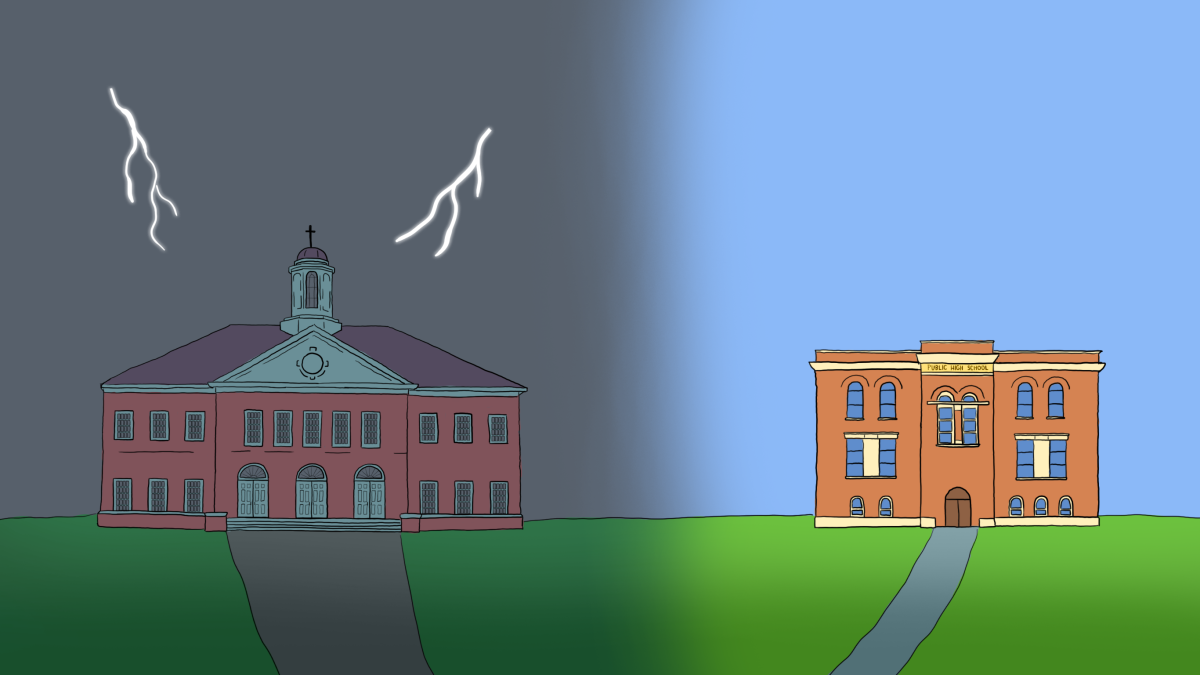I’ve been immersed in academia since birth. Not the academia you’re envisioning. It wasn’t French brick halls nor mahogany bookshelves, and it most certainly wasn’t people in suits or fineries.
I was born into the public education system. My mother and grandmother are both educators. I’m even pursuing an English degree — secondary education.
My academia was harsh overhead lights and early mornings waiting in my mom’s classroom as a child. It’s quiet talk of, “We don’t have the funding.”
Academia for me was having the ugliest school uniform imaginable — a cross between free dress and uniformity: khaki, violet, maybe shades of heather gray, a touch of white and yellow. It was school lunches being weird most days, but the cafeteria staff making up for it.
My education was public; it was imperfect. But the idea and reality of public education is that it builds a commonality among the people who attend (81.9% of Americans, according to the American Community Survey). It gives us an equal slate and similar rules and standards.
I adore public education, perhaps not for how it is, but what it could and should be.
However, my feelings toward private schools are less positive. I believe they’re detrimental for the youth of today.
Public schools are open to everyone; private schools aren’t. Shocking, I know. However, the deeper implications of this are that students in private school settings aren’t exposed to enough social diversity in general.
Most, if not all, of the students attending a private school will be in an upper tax bracket. They’ll speak and act similarly. And because of harsh grooming and dress policies, they’ll look similar.
These children aren’t exposed to our ever-diversifying world. They just get pumped out of the private school system and into the real world, an already challenging feat for the average graduate. These private school alumni will struggle. Hard.
In my own experience at public high school, you could tell who went to the local private school because of how badly they struggled with socializing. They didn’t have a clue on how to find connections through common experiences, because how they were living and who they were living and interacting with didn’t have common experiences.
Moving past the relative social ineptitude, we arrive at the issue of learning and education in private schools. Because private schools aren’t held to the same standards as public schools, they generally avoid the standardized tests that are a pillar in public schooling.
The main reason people support private education is because it’s seen as better, and parents trust the private school to align with their own beliefs. While private schools typically score higher on average, I’d argue that it’s not a fair match up, as the two forms of education have entirely different demographics, especially in Louisiana.
It’s generally agreed upon that students in lower-income classes perform worse (often due to economic stress), especially in the highly valued areas of STEM. Of course, most private schools need not concern themselves with the peasant folk and their economic issues.
And I’m not trying to say that the public education system is without flaws, but I’d argue that it’s the better system for the future of America. It better prepares children to deal with social issues through personal experience, and it provides a definite baseline of education to be held at a universal standard for testing.
It’s blatantly more diverse, because it’s open to everyone.
Garrett McEntee is an 18-year-old English freshman from Benton.





